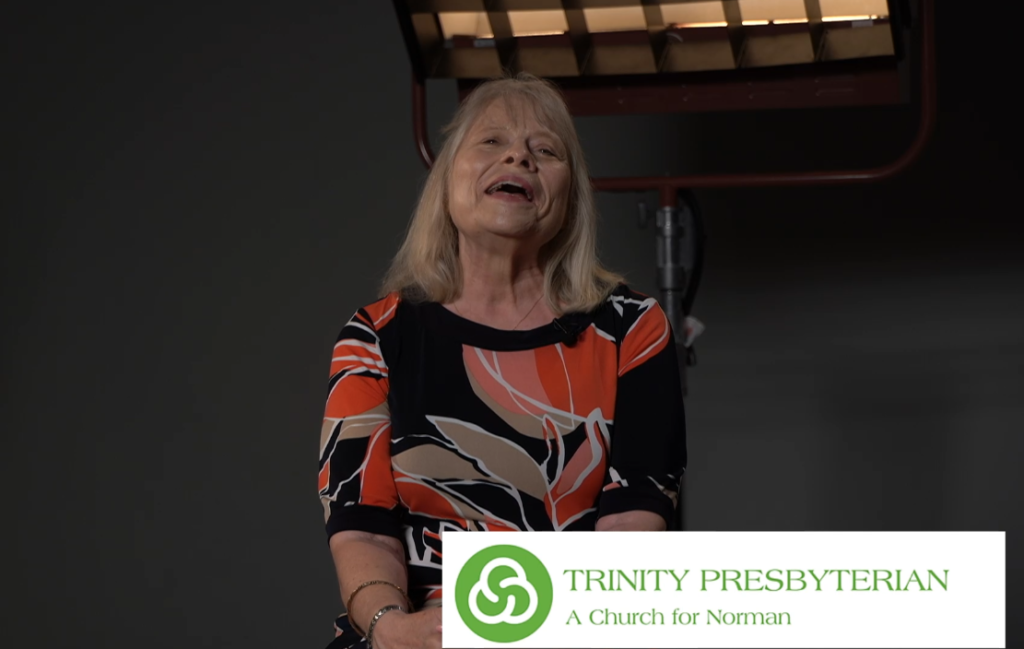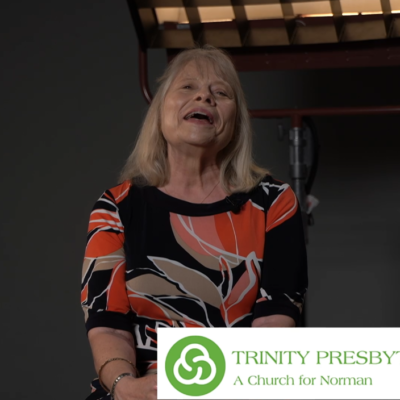
In the clip linked above, one of our members, Stephanie describes why she values our church’s “covenantal” distinctive.
What is covenantal? It has three critical components for how the church should function. Covenantal describes how we understand God’s revelation to his people. Covenantal also accurately describes how God relates to his people. Covenantal also describes how church members relate to one another.
See our church’s form of government document here.
Section 1.4 states, “There is but one Church set forth in the Scriptures. This
Church in all ages is one and the same, and consists of
those who by faith are in the Lord Jesus Christ.” Because of God’s unified Covenant of Grace. We have true unity with the saints of the Old Testament. Their stories are our stories. They looked to a Christ to come as the mediator of God’s covenant. Today, we look back to Jesus Christ as the one mediator of God’s covenant (1 Timothy 2:5). The God of Abraham is the Father of Jesus Christ and He is our God. As Romans 4 teaches, just as Abraham believed God and it was counted as righteousness, so it is with every believer who has confessed with his or her mouth that Jesus is Lord and believed that God raised him from the dead. (Romans 10:9). All people are justified are justified by faith alone and not by works. There is only one way of salvation. This is called Covenant Theology. See also the Westminster Confession of Faith Chapter 7.
See what O. Palmer Robertson in his book, Christ of the Covenants, describes as the unifying and summarizing promise of scripture which occurs again and again:
I am the Lord your God, I am Holy, therefore You Shall Be Holy, I will be Your God, and You Shall Be My People.
Christ of the covenants
Not only is Covenantal a great nickname for the structure of scripture, but it is also a great way to express how God relates to his people. God relates to us by entering into covenants, the two overarching covenants are with Adam and Christ (see Romans 5:12-21). Every single person relates to God via either one of these covenants (Works or Grace). For a more detailed description of covenants, go check out this article on Ligonier.
Covenantal, as well as, expressing how human beings relate vertical to God, it also expresses how believers relate to one another when they join a church. We are called to love our brothers and sisters in Christ after the pattern of Jesus’ love for his church (1 John 3:16-18). Far from relating to God purely as disconnected individuals, we believe that children of believing parents are members of the church and in covenant with the Lord and therefore receive the sign of baptism, see Westminster Confession of Faith Chapter 28. Entering into membership in a local, particular church puts you under the shepherding of elders called by God to care for you and puts you into tangible relationships of responsibility for the spiritual well-being of its other members. Because we are united to Christ by the one Spirit, we are also one body in this covenant of grace and we make membership vows to one another and to Christ our king. You can read our membership vows reproduced below:
(1) Do you confess that you are a sinner in the sight
of God; that you deserve His punishment; that you
are unable to save yourself; and that you are without
hope of salvation except for God’s love and mercy?
(2) Do you believe in the Lord Jesus Christ as the Son
of God and the Savior of sinners; and do you receive
and trust in Him alone for your salvation?
(3) Do you accept the Bible, comprised of the Old and
New Testaments, as the written Word of God; and that it is
the only perfect rule of faith and how to
live?
(4) Do you promise to trust in the guidance and
strength of the Holy Spirit so that you can live all of
life as a Christian, following the example set by Jesus
Christ?
(5) Do you promise to exercise faithful stewardship of
God’s resources entrusted to you for the furtherance
of God’s Kingdom and purposes?
(6) Do you accept that the doctrines and principles of
the Standards of the Associate Reformed Presbyterian
Church are founded upon the Scriptures?
(7) In loving obedience, do you submit yourself to the
government and discipline of this church, promising
to seek the peace, purity, and prosperity of this
congregation as long as you are a member of it?
We are covenantal. God’s covenant is central to all we do. Each time we gather for worship, we are participating in a covenantal renewal. God “remembers” his covenant and his covenant people, and his people hear his word and respond with such covenant signs and seal as their participation in the Lord’s Supper where they “do this in remembrance of me.”
Much more could be said regarding the covenantal distinctive of our church. This is merely introductory to a broad concept that inhabits all that we do as a church. We believe our distinctive of being covenantal sets Trinity Presbyterian Church apart as a needed church in a world that has grown increasingly individualistic, secular, and antagonistic to holiness. We believe that a more robust, biblical, covenant theology is the antidote to these unfortunate curses.
At Trinity Presbyterian Church, we are “a church for Norman,” but we’ll only be a blessing to Norman as we consistently live out our calling to gratefully love our covenant Lord and to love His covenant people. We call you to join us for worship on Sundays at 10:30. We have three discipleship classes that meet on Sunday mornings at 9:45 A, M. You can find us at 428 W. Lindsey. May we be covenantal to God’s glory!


